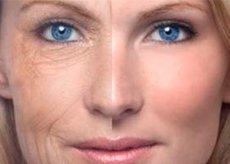New publications
Resveratrol: a new step towards rejuvenation
Last reviewed: 02.07.2025

All iLive content is medically reviewed or fact checked to ensure as much factual accuracy as possible.
We have strict sourcing guidelines and only link to reputable media sites, academic research institutions and, whenever possible, medically peer reviewed studies. Note that the numbers in parentheses ([1], [2], etc.) are clickable links to these studies.
If you feel that any of our content is inaccurate, out-of-date, or otherwise questionable, please select it and press Ctrl + Enter.

A group of leading genetic scientists from Great Britain have created a new method for restoring aging cellular structures. The basis of the new method is the use of natural phenol - resveratrol. The new development of scientists will not only prolong human life, but also avoid diseases that are characteristic of old age and caused by age-related changes in the body.
In the study, geneticists assessed the effects of resveratrol and similar substances on aging cell structures called fibroblasts. Large accumulations of these cell structures make the body more susceptible and defenseless against diseases, because fibroblasts stop growing and lose their functional capacity with the onset of age-related changes.
Clinical trials have confirmed that under the influence of resveratrol, aging cellular structures gradually rejuvenated and restored their capabilities: a functional increase characteristic of younger structures was observed, and cell division processes were renewed.
"Resveratrol activates the activity of splicing factors, which determine the process of "maturity" of the RNA matrix. Based on the results of the experiments, it became clear that the use of chemically active substances plays a huge role in restoring the functionality of aging structures," notes Dr. Lorna Harris, a specialist in the Department of Molecular Genetics at the University of Exeter.
Researchers are inclined to believe that therapeutic effects based on the use of natural phenols will become a decisive method for preventing heart disease, malignant tumors, Parkinson's disease and senile dementia.
Resveratrol has been studied in detail for a long time. This substance is a natural phytoalexin, which is present in some plants and plays the role of a kind of antiparasitic protection - in particular, it protects the plant from microbes and fungi. Resveratrol was subsequently isolated artificially: now it can be purchased in pharmacies as a bioactive supplement based on Japanese knotweed.
Previous studies have already proven that this substance has antitumor, anti-inflammatory, hypoglycemic, chelating effects. Resveratrol is rich in grape berry skins, so it is believed that red wine also has the listed properties.
Plant phenol is recognized as an excellent antioxidant and antimutagen, it induces the phase of two enzyme substances. Due to the anti-inflammatory effect, inhibition of the function of cyclooxygenase and hyperperoxidase occurs, which prevents the development of cancerous tumors.
Resveratrol has a regressive effect on leukemia, as it induces cellular differentiation, and also exhibits activity in the prevention of breast and skin cancer.
The research was conducted at the University of Exeter. Details of the work are available on the University of Exeter website – exeter.ac.uk.

 [
[